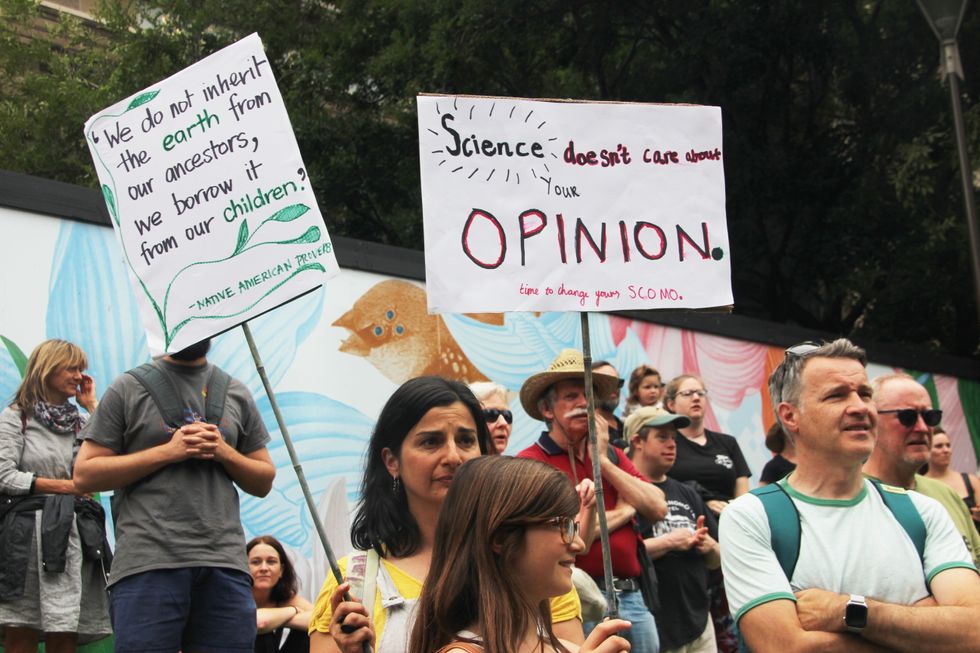Climate change is real. Pollution and waste are everywhere; even the uninhabited, largely unvisited beaches have plastic waste.
Globally, we use about one million plastic bottles per minute. 91% of all plastic is not recycled.
Sometimes it can be hard to recycle, and sometimes you just have to use a plastic bottle. While I encourage everyone to be more conscious of their plastic use and generally make more eco-conscious choices in simple, every day ways (like a reusable bottle or bringing your own shopping bags), there are two larger contributors that you can work to minimize your impact upon, even if you may not want to. But, reducing your contribution to these two industries can reduce your personal pollution contribution to the planet.
What are they?
Fast fashion and the animal industry hurt the planet. A lot.
Fast fashion consists of the brands, stores and companies that sell trendy, low-cost clothes and have new styles coming out every week. These are often companies that use offshore manufacturing with cheap labor with poor work conditions.
You may be thinking, well, if it's cheap and cute, what's the big deal? How does that impact the planet?
The fashion industry is one of the highest polluting industries in the world. In fact, it's the second highest polluting industry, only falling short in comparison to oil.
How the heck did that happen?
85% of the textiles we buy wind up in the landfill every year.
We throw out about 150 pounds (70 kilograms) of textile every year.
Fast fashion supplies us with affordable and trendy, but poorly made, clothes that either go out of style or fall apart within a few washes or wears. We either throw them away or donate them to thrift shops like Goodwill, that receive so many clothes and actually end up throwing away what they can't fit on the racks, so even things you donate end up being thrown in the exact same landfill you were trying to keep your clothes out of.
Clothes made from synthetic materials like nylon, polyester, and acrylic can take up to 1,000 years to biodegrade.
By cutting out brands like Forever 21, H&M, Charlotte Russe, Boohoo, etc., you're keeping clothes out of the landfill. Those clothes would otherwise take longer than your lifetime, your kids' lifetimes, your grandkids' lifetimes, and your great grandkids' lifetimes to biodegrade. Probably even double all of those lifetimes. That's way too long for a garment you wore only two or three times.
To help remedy your need for clothes, try thrift shops, consignment stores, or buy clothes made from recycled materials.
How does the animal industry hurt the planet?
"Livestock farming contributes 18% of human produced greenhouse gas emissions worldwide. This is more than all emissions from ships, planes, trucks, cars and all other transport put together."
See also: 5 Ways The Meat On Your Plate Is Killing The Planet
It also takes about 2,000 gallons of water to produce just one pound of beef.
30% of the land on the planet is used for livestock farming.
Farming animals not only hurts animals, it hurts the planet significantly.
Eating vegan, vegetarian, or just cutting back on your animal product intake can help.
- How To Celebrate Earth Day In A Meaningful Way ›
- 5 Ways To Be Sustainable Without Breaking The Bank ›
- Vegan Fast Food ›
- 11 Ethical Brands for an Ethical Home ›
- How To Avoid 'Fast Fashion' When You Go Shopping ›
- Social Goods | Fast Fashion Gets Eco-Friendly, The Vegan Leather ... ›
- Matter Prints is Helping 'Slow' Vegan Clothing Outpace the Fast ... ›
- Can Vegan Fashion Go Cheap ... But Avoid the Way of the ... ›
- Second-Hand Clothing Haul, Fast Fashion Facts & Shopping In ... ›
- Why You Should Stop Making Excuses To Buy Fast Fashion - Vegan ... ›
- What Does The Future Hold For Vegan Fashion? - Vegan News ... ›
- What Is Fast Fashion - And Why Is It Killing Our Planet? - Vegan ... ›
- Why I Switched To Vegan Fashion From Fast Fashion & How It ... ›

















